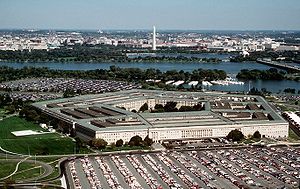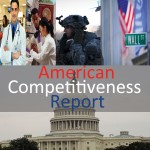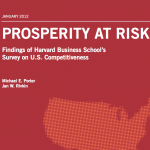
Bigger political threat lurks behind sequester impact debate
 Anyone living in and around the Beltway can tell you that the post-2001 rise in defense spending has given the Washington area an historic economic boost. It felt, at times, like the dot-com boom during the 1990s Bay Area and it was visible everywhere from restaurants to car dealerships to real estate property showings.
Anyone living in and around the Beltway can tell you that the post-2001 rise in defense spending has given the Washington area an historic economic boost. It felt, at times, like the dot-com boom during the 1990s Bay Area and it was visible everywhere from restaurants to car dealerships to real estate property showings.
More broadly, how the national economy ecosystem will change now that federal spending, particularly defense, is being pared back is still playing out. Reduced government spending is indeed taking a bite out of GDP.
For economists, politicians and industry, it’s an essential question. In particular, companies and lawmakers who want to preserve their favored defense programs, the threat of defense-cut driven economic devastation has become a handy political cudgel.
Yet, according to a report from George Mason University’s Mercatus Center, defense cuts in particular may not hurt the U.S. economy as badly as has been portrayed.
“Predictions that the sequester’s defense-spending cuts will have a dire economic impact should be viewed skeptically in light of the nation’s experience with much larger defense-spending drawdowns— including following World War II and the end of the Cold War—neither of which resulted in predicted economic declines,” wrote Robert Barro, a Harvard professor, and Veronique de Rugy, senior research fellow at the Mercatus Center.
Their research found that “over five years each $1 in federal defense-spending cuts will increase private spending by roughly $1.30.”
The focus on sequester’s economic impact is important for many reasons.
Lawmakers need to take a sounding to see how precarious their course might be after cutting federal spending without little discretion. More data, and reports like the Mercatus Center paper, are needed.
Yet the fact that sequester took effect at all is the bigger, and strategic, issue.
A steep price has already been paid.
America’s competitive position in the world is tied to a functional, and somewhat predictable, political system. Business counts on it, both at home and abroad. Our allies also need to believe we are capable of making decisions as a country that are strategic in their aims and rooted in compromise. The twitchy politicking of the past year is  even more frustrating because many of the policy measures taken have been done in the spirit of long-term benefits to the country yet they are carried out in a way that erodes confidence and encourages partisanship.
even more frustrating because many of the policy measures taken have been done in the spirit of long-term benefits to the country yet they are carried out in a way that erodes confidence and encourages partisanship.
As lawmakers consider their agenda for the summer, tackling America’s big structural issues post-sequester should not fall by the wayside. This is the time to improve America’s competitive standing. As the Washington Post reported this week, lawmakers may not take action on a budget deal this summer because the federal fiscal picture is improving through higher taxes and reduced spending.
The economic benefit of a functional political system should be something that no politician needs to have explained to them.
Check out ASP’s White Paper on American Competitiveness that discusses these issues further:
Harvard Business School – American Competitiveness
Harvard Business Review Special Edition
HBS Survey on U.S. Competitiveness: Prosperity at Risk







